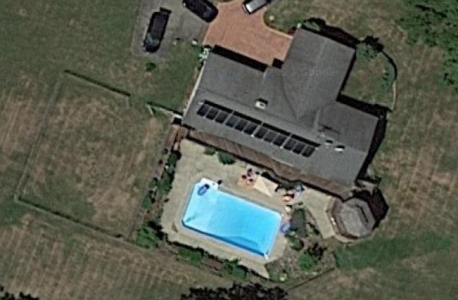We have an array of twenty-two 380W ground-mount panels (~8.4 kW output) and 18 kW/hour of lithium-ion battery back up. Our system went in last June, so still "collecting data".
As advertised by our Pink Energy sales gal, our $175 average electric bill would drop to $40 or save us around $1600 a year. Our system was quoted at an end cost of ~$45K after the 30% Federal tax credit. When I asked what the normal payback was, she replied 5-8 years. Obviously, her math was bad. . . $45,000 / $1600 is more like 28 years. She replied that they were predicting that electric rates would quadruple in the next few years. When my wife and I married 32 years ago, our local utility charged $0.09 / kW hr, we're now up to $0.135 or a 50% increase in 32 years.
We would do it again even though the math doesn't work out. As mentioned by others, it gets us a little greener (at the cost of a lot of green), and gives us limited backup power in a power outage.
My in-laws had a solar heater much like the one mentioned by ChaseAleny above. Their house had a fuel-oil burning boiler, so water lines running throughout the house to radiators. My in-laws system ran glycol in the solar loops which ran through a radiator in the house to transfer heat from the glycol loop to the plain-water loop. They could route the glycol loop to the house system or pool filter. It extended their pool season by easily 3 months in mid-Michigan.
Bruce
View attachment 442672


